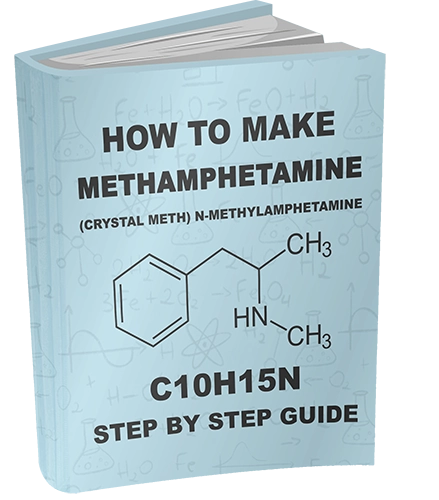Amphetamine is a powerful central nervous system stimulant known for its ability to enhance focus, energy, and alertness. While it has legitimate medical applications in treating conditions like ADHD and narcolepsy, amphetamine is also widely misused as a recreational drug or performance enhancer. This article explores what amphetamine is, how it works, its effects, and the risks associated with its use.
What Is Amphetamine?
Amphetamine is a synthetic stimulant that affects the brain by increasing the activity of certain neurotransmitters, primarily dopamine and norepinephrine. Medications like Adderall and Dexedrine are common prescription forms of amphetamine, used under strict medical supervision to treat specific conditions.
Illicitly, amphetamine is sometimes sold as a powder or tablets, often referred to as „speed.” Recreational use of amphetamine is illegal in most countries and poses significant health risks.
How Does Amphetamine Work?
Amphetamine works by stimulating the release of dopamine and norepinephrine in the brain, leading to heightened alertness, focus, and a sense of euphoria. These neurotransmitters play key roles in mood regulation, attention, and the body’s „fight or flight” response, which explains amphetamine’s stimulating effects.
Medical Uses of Amphetamine
When used responsibly under a doctor’s supervision, amphetamine can be highly effective in treating:
- Attention Deficit Hyperactivity Disorder (ADHD): Helps improve focus, impulse control, and hyperactivity in patients.
- Narcolepsy: Reduces daytime sleepiness and helps maintain wakefulness.
- Obesity (Historically): Previously prescribed as an appetite suppressant, though this use has declined due to safety concerns.
Short-Term Effects of Amphetamine
Amphetamine use, whether prescribed or recreational, produces a range of effects:
- Positive Effects (at prescribed doses):
- Enhanced focus and concentration.
- Increased energy levels.
- Improved mood.
- Recreational or High Doses:
- Intense euphoria.
- Decreased need for sleep.
- Increased physical stamina.
- Negative Effects:
- Restlessness or jitteriness.
- Elevated heart rate and blood pressure.
- Appetite suppression.
Risks and Side Effects of Amphetamine Use
While amphetamine has medical benefits, misuse can lead to serious side effects and health risks, including:
- Cardiovascular Risks: Increased heart rate and blood pressure can lead to heart attack, stroke, or arrhythmia.
- Mental Health Issues: Prolonged use may cause anxiety, paranoia, or hallucinations.
- Addiction: Amphetamine is highly addictive, especially when used recreationally.
- Physical Effects: Overuse can result in weight loss, malnutrition, and dental problems („meth mouth” in cases of methamphetamine, a related substance).
Signs of Amphetamine Addiction
Amphetamine addiction often begins with casual use but can quickly spiral into dependence. Warning signs include:
- Cravings for the drug.
- Inability to function without it.
- Neglecting responsibilities to obtain or use amphetamine.
- Developing tolerance, leading to higher doses.
Long-Term Effects of Amphetamine Use
Chronic amphetamine use can result in:
- Brain Changes: Long-term overstimulation of dopamine systems can lead to depression, memory loss, and cognitive decline.
- Physical Deterioration: Extreme weight loss, cardiovascular strain, and organ damage.
- Behavioral Problems: Irritability, aggression, and social withdrawal.
Recreational Use and Dangers
Recreational use of amphetamine often involves taking larger doses than prescribed, which significantly increases the risk of overdose. Symptoms of amphetamine overdose include:
- Severe agitation or confusion.
- Chest pain and difficulty breathing.
- Seizures or loss of consciousness.
In such cases, immediate medical attention is critical.
Harm Reduction Strategies
For those who choose to use amphetamine recreationally, harm reduction practices can minimize risks:
- Avoid Mixing: Combining amphetamines with alcohol or other drugs increases toxicity.
- Start Low and Go Slow: Taking smaller doses reduces the risk of overdose.
- Stay Hydrated: Amphetamines can cause dehydration, especially during physical activity.
- Know Your Source: Illicit amphetamines may be cut with dangerous substances.
Amphetamine in Popular Culture
Amphetamine use has been glamorized in some circles, particularly as a „study drug” or performance enhancer. However, its misuse can have devastating consequences. Educating individuals about the risks of amphetamine abuse is essential to combating this harmful perception.
Final Thoughts
Amphetamine is a powerful substance with both therapeutic potential and significant risks. While it can improve the lives of those with ADHD or narcolepsy when used responsibly, recreational use carries the dangers of addiction, mental health problems, and physical harm.
If you or someone you know is struggling with amphetamine misuse, seeking professional help can make all the difference.



You must be logged in to leave a comment.
Login